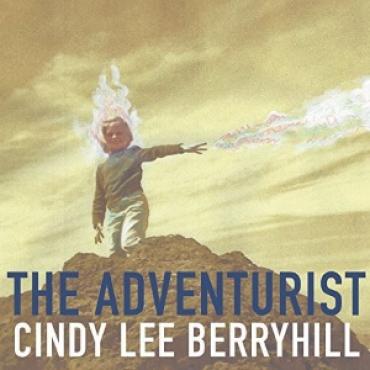Cindy Lee Berryhill— When Voice Meets Arrangement

Man, I love albums that make me wish I had produced them. The Adventurist gives me ample opportunity to rethink what I already know is an amazingly put together album and I have been rethinking it since first listen, each time I listen. Like, would it be better to slide the ending chord of “American Cinematography” beneath the beginning of the next track, “Somebody’s Angel,” like musical tectonic plates? Could “Somebody’s Angel” have used a full choir on the vocal interlude? Should Berryhill have used one producer for a more flowing result?
It is what I do when I listen. Rearrange. Question. Imagine. I mean, I wonder what if musically like a chemist wonders what if chemically. I always have, music being almost as important to me as breathing. I want to pick apart everything and see if I can put it back together better. Sometimes I think I can. Not here, though. The Adventurist is one of those imperfect/perfect albums that if you touch, you destroy. How Berryhill and four completely separate co-producers pieced this together, I will never know, but they did and they did it beautifully.
I was hooked from the Americana-ish intro to “American Cinematography” with the Monkees-ish guitar riff which I heard morph into a cross between chamber music and film background— not just music but elements of ambience. The album, in fact, is peppered with sidesteps, taking a perfectly good song into a parallel universe, be it through a barrage of sounds or inserting what seems like another song altogether, albeit for only short bursts. “Somebody’s Angel,” driven by Beatles-esque strings, follows beautifully and could easily be used on the musical stage. Touches of the fifties and sixties tinge “Contemplating the Infinite (In a Kiss),” the arrangement being the key.
Listening to this album brought back so much of my past. The fifties and sixties qualities are spot on but you have to listen for them. With simple touches like the background vocal/trombone mix on “I Like Cats/You Like Dogs” or the smooth instrumental ride on “Deep Sea Fishing,” Berryhill takes us on a ride into the past. This time, though, it isn’t the same old pop ride we’re used to. This ride dips into territories seldom visited— that inhabited by Sergio Mendes, Nelson Riddle, and others— the arrangers.
In fact, arrangements seem to be what vaults this album into the atmosphere, each song relying on just the right sounds/instruments/chord changes— all in sync and from what I can tell, purely organic (meaning that the music takes itself where it is supposed to go in spite of human interference). I do not mean that Berryhill was handed the songs on a silver platter, rather that she created each from what was within… naturally. Songwriting is a process. And she makes us believe.
I originally had a different header for this review but I had to change it. The more I listened the more I realized that the high points of the album were where unembellished voice meet arrangement. They work both with and against each other at times and I find it not just aurally pleasing but fascinating. I wouldn’t have done it that way, but then again I am neither David Schwartz, Ben Moore, Lee Ray, nor Sheldon Gomberg. I don’t know how they did it (though I suspect that Berryhill’s focus had a bit to do with it), but the four co-producers somehow give the album a cohesiveness hard enough to achieve with just one. As Jimmy Hatlo would say, “Thanks, and a Tip o’ the Hat…”
I also can’t help but think that Paul Williams had something to do with this. Williams was the man behind Crawdaddy Magazine during the golden age of rock magazines— a guy who lived and breathed music and who tried like hell to get us to live and breathe it too. He was also husband to Berryhill. I cannot imagine how Berryhill could have not been affected by him over the years they were together. I firmly believe that this album would not have been the same without him. He taught me a lot and I just read the magazine. I am sure he taught Cindy Lee Berryhill as well, by osmosis if nothing else.
On a personal note, I felt like I knew Berryhill before I ever heard her. My friend Gary Heffern had been singing her praises for years. In fact, he never shut up about her. I should have taken the hint. Gary had never led me astray when it came to music. He still hasn’t.


